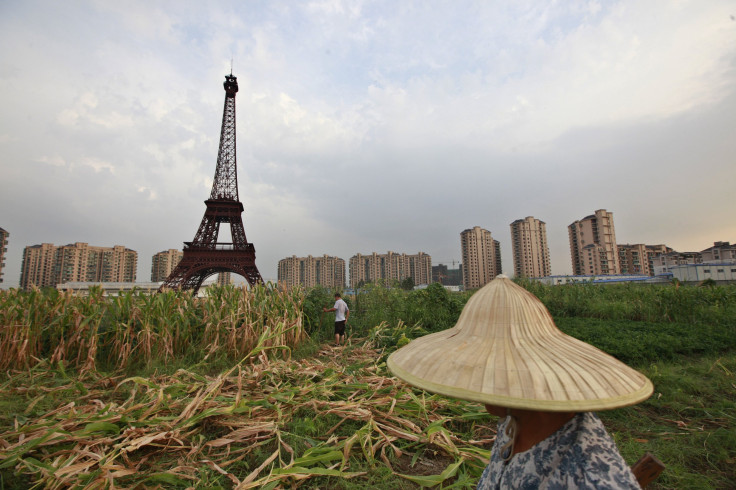Chinese Local Government Officials Could Face Criminal Punishment For Land Grab

China’s Ministry of Land and Resources warned local governments this week that selling land without authorization at the expense of local farmers could land officials in jail.
An audit of land use in 48 cities and counties revealed that 34 municipal governments have taken land from farmers and converted it to industrial or commercial use without proper authorization, involving 520 construction projects and a total area of 2,147 hectares, the Wall Street Journal reported, citing the ministry.
Even worse, some governments took land from farmers without compensation, and many of them exceeded the central government approved quotas for land sales. Overall, local governments owe farmers nearly 2 billion yuan ($320 million) in unpaid compensation, affecting close to 20,000 individuals.
"Unauthorized and illegal activities, led by some city and county governments, have occurred repeatedly despite warnings,” the statement from the ministry said, according to the Wall Street Journal. “Land supervision still faces severe challenges.”
Governments face pressure to expand local economies, and officials often turn to land sales as a source of income and put the proceeds into funding infrastructure development and other projects. In 2013, land sales brought in 4 trillion yuan nationwide, a 45 percent jump from a year earlier.
There were more than 23,800 violations of some kind of land regulations, covering a total of 201,200 hectares. In 1,339 cases covering a total area of 5,526 hectares, local governments sold land at a price lower than market value in order to get quick cash and attract investment for businesses, according to the Wall Street Journal.
Aggressive appropriation of farmers’ land have led to social unrest in many areas of China. Approximately 4 million rural dwellers’ land is taken by the government every year, and conflict over land accounted for 65 percent of the 187,000 mass conflicts in China in 2010, according to a survey from Landesa.
© Copyright IBTimes 2024. All rights reserved.











